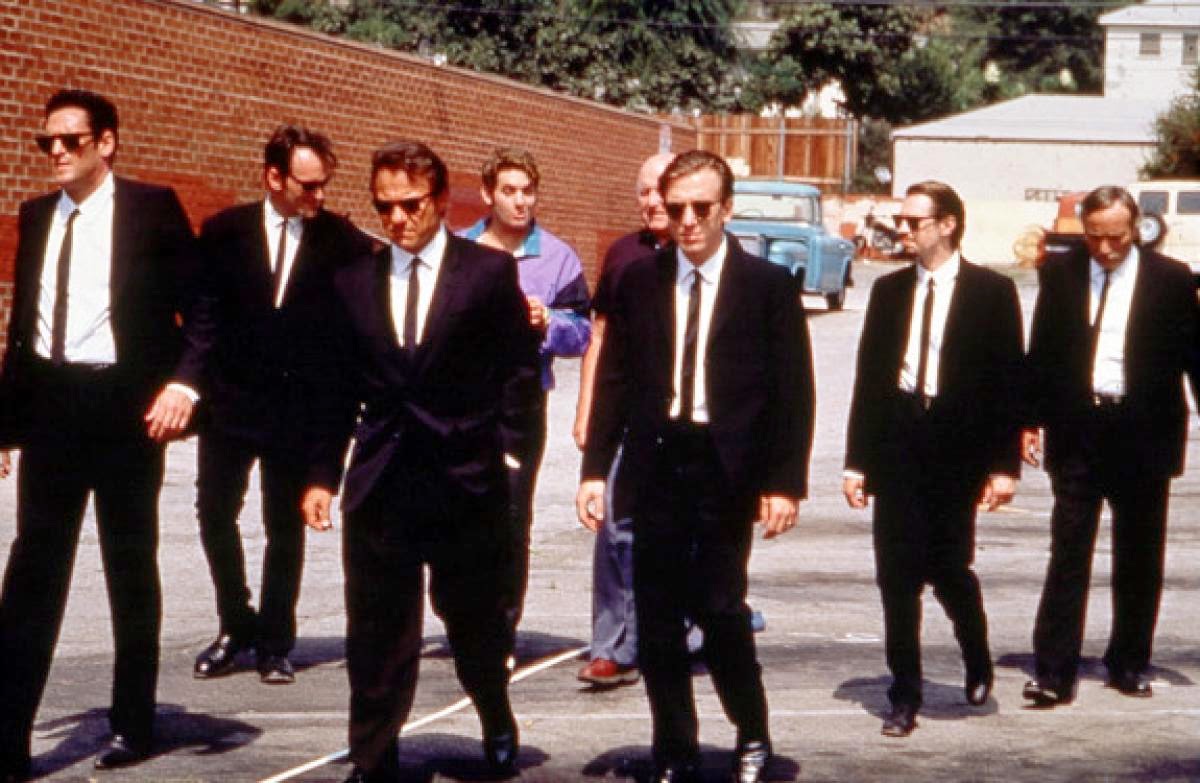Media has always been a step short when it comes to the way
it represents gender and sexuality.
Modern media is still struggling when it comes to the female
presence. Many movies fail to have any
female characters, and when they do have a female on screen, they typically
lack any plot crucial dialogue/monologue.
And in many cases, the female appearance is purely used in a sexual
connotation in order to control the attention of the male audience and draw
them into the media in question. Quentin
Tarantino’s Reservoir Dogs is a
perfect example of this; however, there maybe more to this example than what
first meets the eye.
So this movie starts off with a scene introducing the eight
important male characters while they converse about Madonna. More specifically, they are talking about the
meaning to her song Like a Virgin. Essentially, the end of the conversation is
Mr. Brown’s very sexual explanation or meaning to the song. So right off the bat, you have eight men
talking about a woman who’s having sex.
One would argue that Quentin Tarantino is using femininity and sex to
draw in the male audience at the beginning of the movie. In other words, Tarantino would be using the
topic of sex to hook his male
audience. No matter how true that
statement may be, I think Tarantino has a different meaning hiding in the
dialogue.
When Tarantino writes a story, he tries his darnedest to
make it as realistic as possible. He
wants his script to mirror the way he sees society, especially all of the bad
society has to offer. This is apparent
with his dialogue the most. Anyone who
is familiar with Tarantino’s work would remember that his films are littered
with F-bombs and N-bombs. This is
especially apparent with Reservoir Dogs. He wanted to make these eight men as real and
lifelike as they can be, and that includes having them talk how he thinks
people talk.
 Having that said I can now get onto my point. I think Tarantino was writing in a way to
reflect how sexual or feminine media affects the average everyday men. He wasn’t trying to lure his audience in
through sex, but rather, write about men who have already bought into
questionably sexual media such as Madonna’s song Like a Virgin. This scene is
about eight “average” men who are having breakfast at a local diner. One of them brings up Madonna’s new song, Like a Virgin, and begins to explain the
meaning to the lyrics. If you follow his
explanation to the finish, you can conclude that the song is very sexual,
instead of the man who is describing the song.
It is as if Tarantino demonstrating how media represents women or sexuality. Even if the overwhelming majority of his film lacks any female presence, his goal is to accurately depict the realistic events of these male characters leading up to the Heist and to their tragic deaths. In this scene of Reservoir Dogs, Quentin Tarantino writes about eight very real men having a very real conversation at a very real diner.
Having that said I can now get onto my point. I think Tarantino was writing in a way to
reflect how sexual or feminine media affects the average everyday men. He wasn’t trying to lure his audience in
through sex, but rather, write about men who have already bought into
questionably sexual media such as Madonna’s song Like a Virgin. This scene is
about eight “average” men who are having breakfast at a local diner. One of them brings up Madonna’s new song, Like a Virgin, and begins to explain the
meaning to the lyrics. If you follow his
explanation to the finish, you can conclude that the song is very sexual,
instead of the man who is describing the song.
It is as if Tarantino demonstrating how media represents women or sexuality. Even if the overwhelming majority of his film lacks any female presence, his goal is to accurately depict the realistic events of these male characters leading up to the Heist and to their tragic deaths. In this scene of Reservoir Dogs, Quentin Tarantino writes about eight very real men having a very real conversation at a very real diner. 












